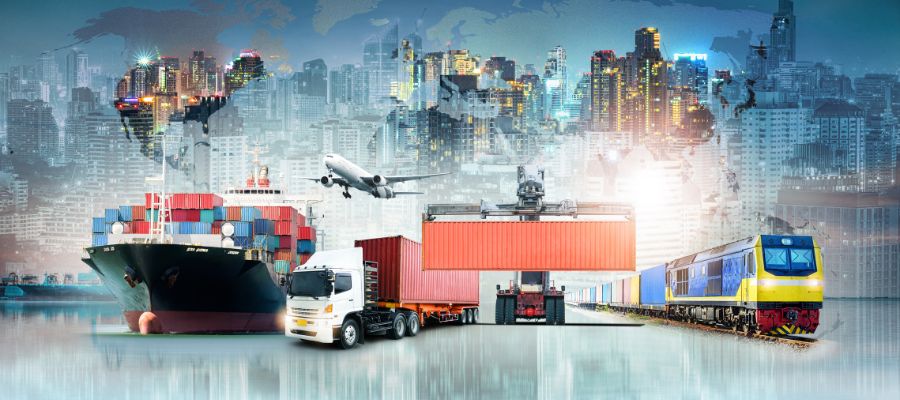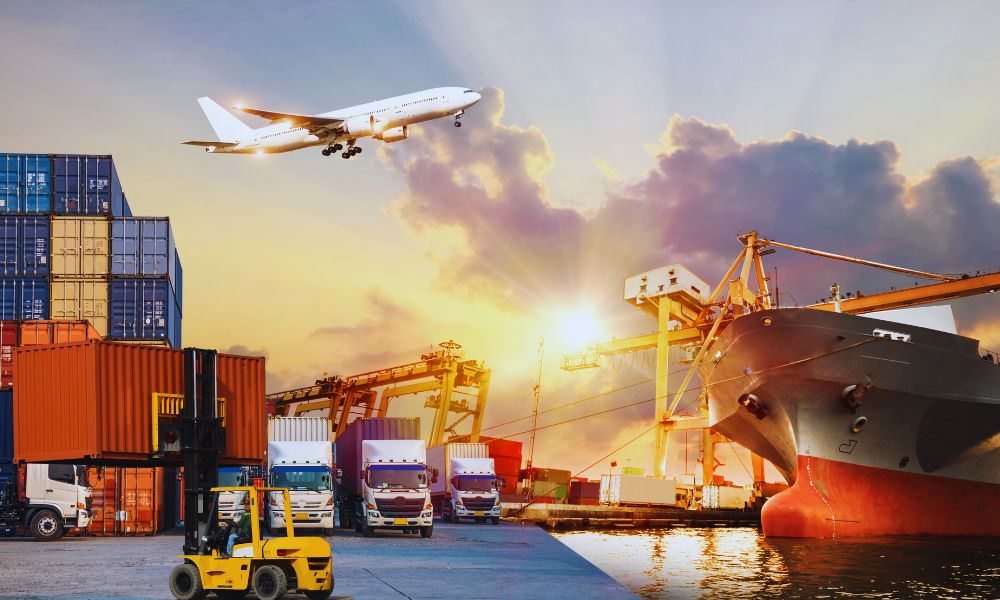The transportation and logistics sectors are vital for global trade, and data analytics plays an essential role in enhancing their efficiency and effectiveness.
This blog will examine how data analytics impacts these sectors, emphasising its benefits for operational improvement and customer satisfaction.
Difference Between Transport and Logistics

The transportation and logistics industry are closely interconnected terms but they differ significantly in their scope and function within the supply chain. Here is an elaborated breakdown of the differences in point form:
1. Transportation
Refers specifically to the movement of goods and people between locations. It is concerned with the methods and means of transit, including road, rail, air, and sea transport. Transportation focuses on the execution of moving items from point A to point B efficiently.
2. Primary Focus
Primarily concerned with the selection of modes of transport, route optimization, cargo safety, and timely delivery. The main objective is to ensure that goods or individuals are transported effectively and efficiently, minimising costs and maximising speed.
3. Tools and Technologies Used
Utilises tools such as fleet management software, GPS tracking, and transportation management systems (TMS) that focus on vehicle maintenance, fuel management, and regulatory compliance.
4. Impact of Data Analytics
Data analytics in transportation focuses on optimising routes, predicting vehicle maintenance, and enhancing fuel efficiency. Analysing data helps streamline operations and reduce delays.
5. Logistics
Encompasses a broader range of activities aimed at optimally managing the flow of goods from the point of origin to the point of consumption. Logistics includes transportation as one of its elements but extends to inventory management, warehousing, handling, order fulfilment, and supply chain management.
6. Primary Focus
Focuses on the overall strategy of how movement of goods is managed within and between companies. This includes not only transportation but also services that support and optimise it, such as storage facilities, inventory control, and order processing.
7. Tools and Technologies Used
Involves more complex systems that incorporate data from across the entire supply chain. These systems, known as logistics management systems (LMS), include features like warehouse management systems (WMS), customer relationship management (CRM) tools, and enterprise resource planning (ERP) systems that help coordinate all logistical activities.
8. Impact of Data Analytics
Data analytics in logistics looks at a broader spectrum, from forecasting inventory needs to analysing customer buying patterns and optimising the supply chain. It plays a key role in improving the efficiency and effectiveness of logistical operations, leading to better decision-making across multiple levels of the supply chain, with the assistance of business intelligence consultancy.
Importance of Data Analytics in Transportation and Logistics

Data analytics provides insights that help businesses make informed decisions quickly. In transportation and logistics, it helps predict trends, optimise operations, and improve service delivery, which are critical as business integration strive to meet increasing efficiency demands and customer expectations.
Data Sources in Transportation and Logistics

Data in transportation and logistics comes from multiple sources: vehicle telematics, GPS systems, traffic management systems, supply chain operations, and customer interactions. This data is vital for analysing performance and improving service delivery.
Customer Satisfaction and Personalization

By analysing customer data and logistics performance, companies can offer more personalised services, optimise delivery routes, and shorten delivery times, which greatly enhances customer satisfaction. Personalised service is increasingly important for building customer loyalty and encouraging business growth.
Benefits of Data Analytics for Businesses

Using data analytics in transportation and logistics leads to better decision-making, higher operational efficiency, cost reductions, and improved profitability.
Analyzing data not only helps businesses predict demand, manage inventory more effectively, and choose the best routes but also supports overall business growth.
As a business growth consultant, harnessing data insights becomes indispensable for optimizing operations and maximizing profitability. Implementing data analytics in transportation and logistics brings several advantages:
1. Improved decision-making
Companies can make faster, better-informed decisions that are more closely aligned with strategic goals.
2. Increased efficiency
Optimising routes, schedules, and supply chain processes lowers costs and enhances service delivery.
3. Better risk management
Predictive analytics allows companies to foresee and mitigate potential disruptions.
4. Environmental impact
Efficient logistics contribute to lower carbon emissions and better use of resources.
Challenges and Considerations

Integrating data analytics into transportation and logistics can be challenging due to concerns about data privacy, the high costs associated with technology implementation, and the need for skilled personnel. Establishing a comprehensive data governance system is also critical to ensure the integrity and security of data.
Conclusion
Data analytics significantly benefits the transportation and logistics sectors, helping businesses streamline operations, improve customer satisfaction, and achieve growth.
As technology continues to advance, the importance of data analytics in these sectors will only increase, making it crucial for businesses to develop strong data governance and analytics capabilities to remain competitive.























